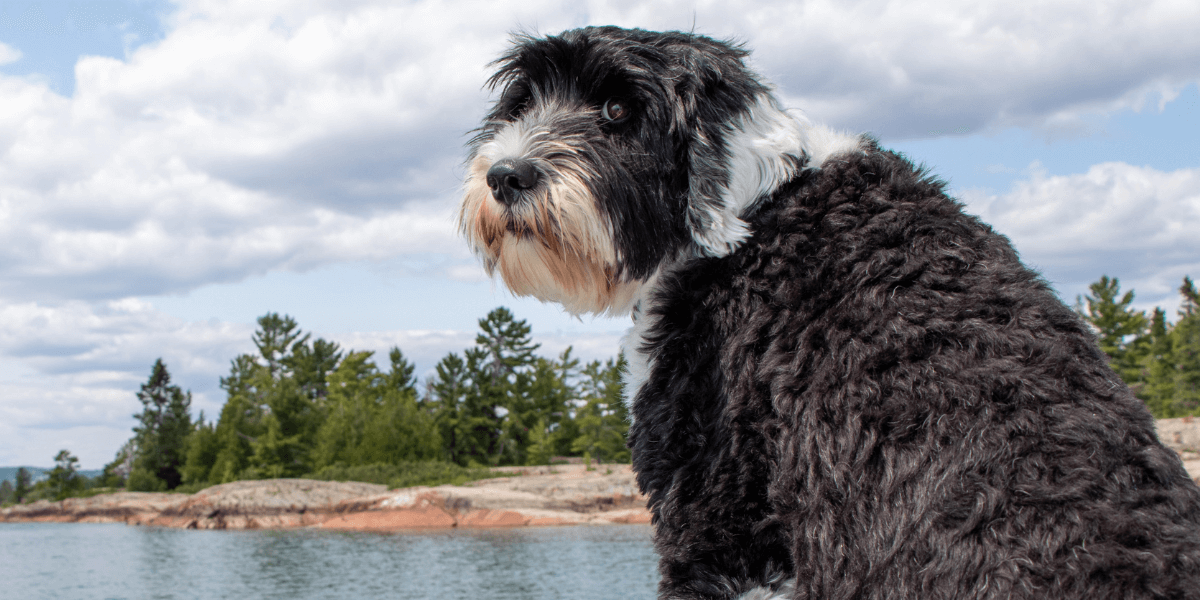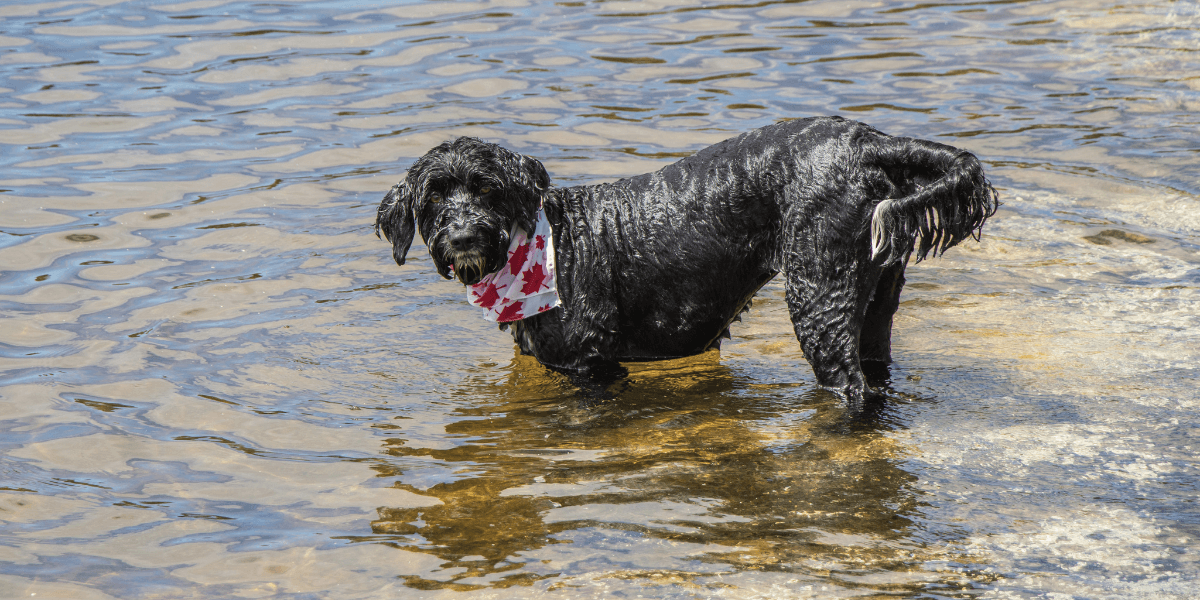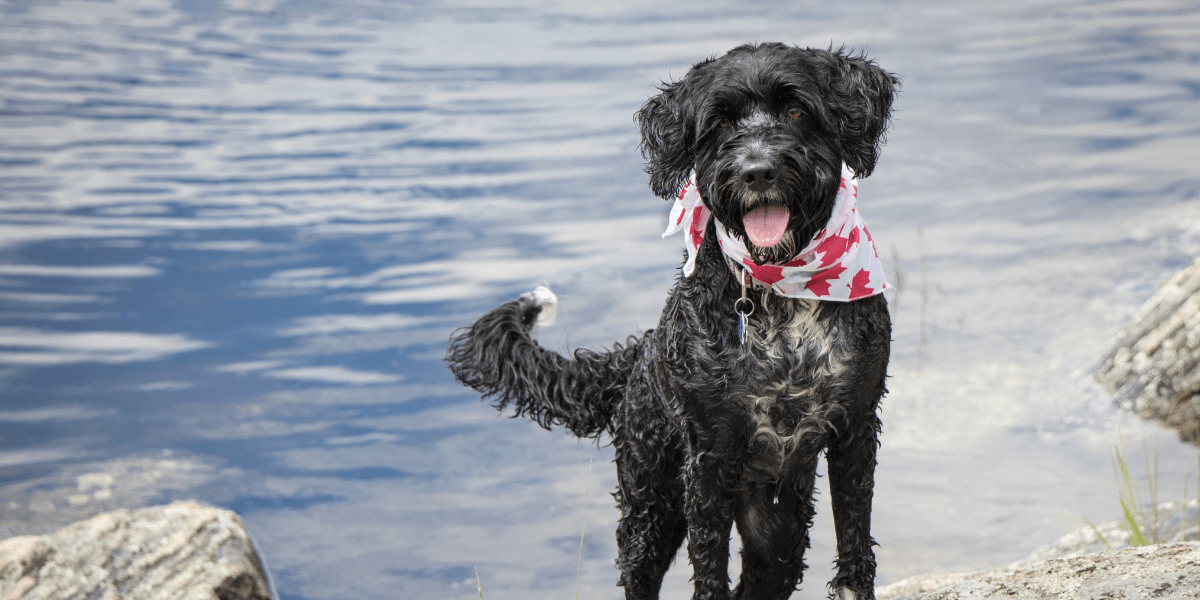Introduction
Health concerns for Portuguese Water Dogs can impact their quality of life.
- Like all breeds, they have unique health concerns
- Understanding these issues helps ensure a longer, healthier life
- Preventative care is key for managing potential health problems
- Regular vet check-ups are crucial for early detection and treatment
- Here are the top 10 health concerns and how to care for them
1. Hip Dysplasia

Health concerns for Portuguese Water Dogs include joint problems like hip dysplasia.
- Genetic Factors: Check the breeder's health records
- Symptoms to Watch: Look for limping or difficulty standing
- Preventative Care: Maintain a healthy weight and exercise routine
- Treatment Options: Consult a vet for surgical and non-surgical solutions
- Lifestyle Modifications: Use ramps and avoid slippery floors
- Exercise Recommendations: Opt for low-impact activities like swimming
- Joint Supplements: Include glucosamine and chondroitin in their diet
2. Progressive Retinal Atrophy (PRA)

PRA is a degenerative eye condition that can lead to blindness.
- Genetic Screening: Choose breeders who test for PRA
- Signs of PRA: Monitor for night blindness or dilated pupils
- Prevention Tips: Early detection through regular eye exams
- Diet and Supplements: Include foods rich in antioxidants
- Adjusting Environment: Keep surroundings consistent for easier navigation
- Specialized Training: Teach commands for safe navigation
- Assistive Devices: Consider using ramps and textured mats for guidance
3. Addison’s Disease

This hormonal disorder affects the adrenal glands and overall health.
- Recognizing Symptoms: Look for lethargy, vomiting, or weight loss
- Diagnosis: Blood tests help identify low hormone levels
- Regular Monitoring: Schedule routine blood tests for your dog
- Medication Management: Follow vet guidance for hormone replacement
- Emergency Preparedness: Know the signs of an Addisonian crisis
- Diet Adjustments: Maintain a balanced diet with adequate sodium
- Stress Management: Minimize stress to prevent triggering a crisis
4. Cardiomyopathy

Health concerns for Portuguese Water Dogs include heart issues like cardiomyopathy.
- Early Detection: Regular vet check-ups with heart monitoring
- Symptoms to Notice: Watch for coughing, fatigue, or breathing issues
- Exercise Guidelines: Keep activity moderate and avoid overexertion
- Nutritional Support: Consult your vet about a heart-healthy diet
- Medication Protocols: Follow prescribed treatments for heart health
- Weight Management: Keep your dog at a healthy weight to reduce strain on the heart
- Hydration Monitoring: Ensure your dog stays well-hydrated to support cardiovascular health
Learn about cardiomyopathy in Portuguese Water Dogs and how it compares to Great Danes' health issues.
5. Epilepsy

Epilepsy is among the serious health concerns for Portuguese Water Dogs.
- Identifying Triggers: Track patterns in seizure occurrence
- Vet Consultation: Seek advice if seizures are frequent or severe
- Medication Use: Adhere to the vet-prescribed treatment plan
- Home Safety: Create a safe space during seizure episodes
- Emergency Actions: Know when to seek urgent veterinary care
- Stress Reduction: Minimize stress to reduce seizure frequency
- Seizure Diary: Maintain a log of seizure details to aid in treatment adjustments
6. Allergies

Portuguese Water Dogs can suffer from skin, food, or environmental allergies.
- Common Allergens: Identify common triggers like pollen or certain foods
- Signs of Allergies: Notice itching, redness, or digestive problems
- Testing for Allergies: Get allergy tests to pinpoint specific triggers
- Allergy Management: Use prescribed medications and dietary changes
- Preventative Measures: Keep your home clean and use hypoallergenic products
- Regular Grooming: Bathe your dog regularly to remove allergens from the coat
- Environmental Control: Limit outdoor exposure during high pollen seasons
Discover dietary tips to manage allergies in Portuguese Water Dogs, inspired by the healthiest diet for German Shepherds.
7. Ear Infections

Health concerns for Portuguese Water Dogs often include recurring ear infections.
- Regular Cleaning: Clean ears weekly to prevent wax build-up
- Signs of Infection: Watch for head shaking, odor, or redness
- Preventing Moisture: Dry ears thoroughly after swimming or baths
- Treating Infections: Use vet-prescribed ear drops or medications
- Routine Check-ups: Have your vet check ears regularly
- Hair Trimming: Trim ear hair to improve air circulation
- Dietary Support: Ensure a balanced diet to boost immune health
8. Hypothyroidism

Hypothyroidism is a hormonal disorder affecting metabolism and weight.
- Identifying Symptoms: Notice weight gain, lethargy, or hair loss
- Diagnosis: Blood tests are essential for confirming hypothyroidism
- Medication: Follow vet-prescribed hormone replacement therapy
- Diet Adjustments: Include thyroid-supportive foods in their diet
- Regular Monitoring: Schedule regular blood tests to monitor hormone levels
- Exercise Routine: Maintain a light exercise routine to support metabolism
- Environmental Factors: Minimize exposure to toxins that could affect thyroid function
Understand hypothyroidism in Portuguese Water Dogs and its relation to German Shepherd dog health issues.
9. Dental Disease

Dental disease is common and can impact overall health.
- Regular Brushing: Brush your dog's teeth at least twice a week
- Dental Check-ups: Schedule yearly dental exams with your vet
- Signs of Dental Issues: Look for bad breath, drooling, or difficulty eating
- Dental Treats: Use dental chews or toys to reduce plaque buildup
- Professional Cleaning: Have your vet perform regular professional cleanings
- Dietary Support: Provide crunchy kibble to help clean teeth naturally
- Monitor Oral Health: Regularly check for gum redness or swelling
10. Bloat (Gastric Dilatation-Volvulus)

Bloat is a life-threatening condition affecting the stomach.
- Recognizing Symptoms: Notice a swollen abdomen, drooling, or restlessness
- Preventing Bloat: Feed smaller, frequent meals and avoid exercise post-meal
- Emergency Plan: Know the nearest emergency vet clinic location
- Dietary Changes: Avoid feeding foods that promote gas or fermentation
- Gastropexy Surgery: Consult your vet about preventative surgery options
- Meal Timing: Schedule meals at least twice daily instead of one large meal
- Feeding Position: Use elevated feeders to help prevent air swallowing
FAQs
1. What is the best diet for a Portuguese Water Dog
- A balanced diet with high-quality protein and healthy fats
2. How often should I take my dog to the vet
- At least once a year, more often for seniors or health concerns
3. Are Portuguese Water Dogs good for families with children
- Yes, they are friendly, energetic, and great with kids
4. Can Portuguese Water Dogs live in apartments
- Yes, if they get sufficient exercise and mental stimulation
5. How can I prevent my dog from developing allergies
- Keep your environment clean and consult a vet for dietary advice
Conclusion
- Managing health concerns for Portuguese Water Dogs requires proactive care
- Regular check-ups and early detection can make a big difference
- Stay informed about common health concerns specific to this breed
- Ensure a balanced diet, regular exercise, and mental stimulation
- Work closely with your vet to create a comprehensive care plan
- Your dog deserves a happy, healthy life with the right prevention and care




